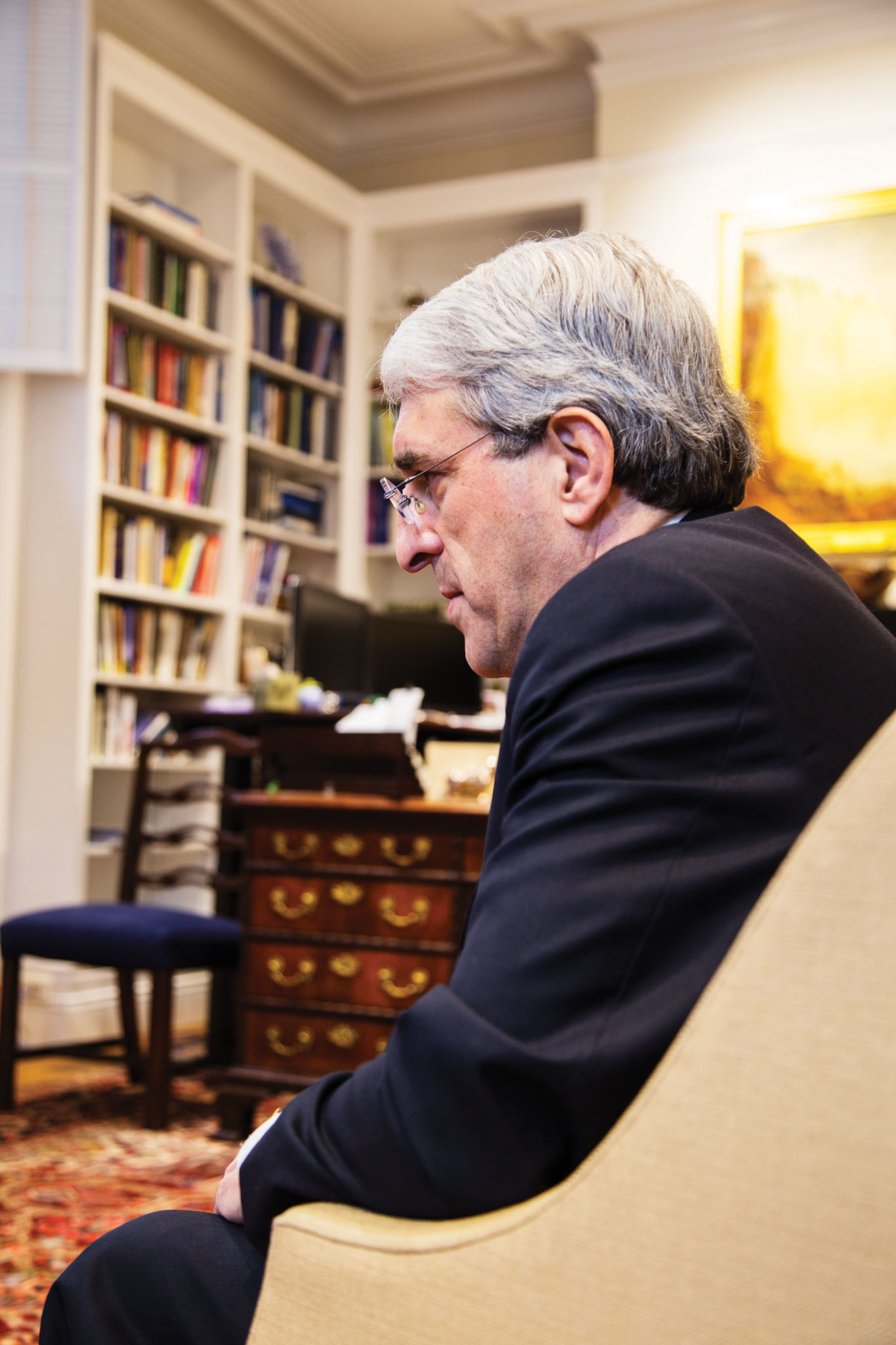
In the wake of new allegations of sexual misconduct levied against Saifullah Khan ’19 on Oct. 5, Dean of Yale College Marvin Chun and University President Peter Salovey remained silent in public, but quietly issued Khan an emergency suspension two days later. Khan, in turn, filed a lawsuit against Yale on Oct. 10, claiming that the suspension represented a breach of contract.
Khan’s case is far from the first reported allegation of sexual misconduct to which administrators have not responded publicly. But why do administrators remain silent amid mounting pressures from students to comment on allegations against members of the Yale community?
Four experts interviewed by the News agreed that commenting on individual cases was against the University’s best interest. Some argued that the University was legally prohibited from doing so. Others contended that confirming cases could make victims more identifiable or prompt lawsuits from the accused.
“I cannot comment on individual cases,” Chun said in a statement to the News earlier this month, when asked about the University’s response to the new allegations against Khan. “I can only confirm Yale’s strong commitment to the safety of our students.”
Katharine Baker, an expert on campus sexual assault and a professor at the Chicago-Kent College of Law, said that while there is not a law forbidding administrators from commenting on individual cases of sexual misconduct, revealing personally identifiable information may prompt lawsuits against the University. Five male students accused of sexual misconduct, including Khan, have sued Yale to date.
“If Yale publicly comments on a case, the campus community will get angry and may act against the accused,” Baker explained. “Then, [the respondent] has a legal complaint because Yale did not protect him adequately in the adjudicatory procedure before he was found guilty in [the beyond a reasonable doubt] standard.”
When Stanford swimmer Brock Turner faced charges of sexual assault in 2015, Stanford refrained from issuing public comment until after Turner was sentenced to six months in jail.
According to Michele Dauber, a Stanford law professor and Title IX expert, Stanford only commented on Turner’s case after the verdict was made because it did not want to “involve itself” in the criminal proceedings. Had the university released a statement prior to the verdict, Turner could have filed a complaint alleging that Stanford was influencing the jury.
Dauber said that, if Yale issued a statement, it would likely influence a court decision.
Administrators have seldom offered responses to ongoing court cases. In the rare case that the University has issued a response, a Yale spokesman has only reiterated that the University contests the facts of the case and believes it will prevail in court.
According to University Title IX Coordinator Stephanie Spangler, Yale’s silence is, in part, because it believes commenting publicly on complaints could prevent victims from reporting their cases.
“We’ve heard clearly — in conversations with community members and through the [Association of American Universities] Survey data — that individuals are often hesitant to seek the support of Title IX resources without strong assurances of confidentiality,” Spangler said. “Indeed, concern about confidentiality is one of the most frequently cited barriers to reporting sexual misconduct.”
Andrew Miltenberg — an attorney who represents students accused of sexual misconduct — said lawyers, general counsel and Title IX departments disagree on a general protocol for how administrators should publicly respond to cases litigated on campus or in court. Miltenberg contended that if universities disclosed results of a sexual misconduct proceeding, it would be a violation of student privacy. He added that revealing information about sexual misconduct cases often makes the victims more identifiable and leads to retaliation against the alleged perpetrator.
The New York–based attorney also argued that commenting on cases would be a violation of the Family Educational Rights and Privacy Act of 1974, which protects student education records. Under the act, schools may disclose the final results of a disciplinary proceeding related to a crime of violence or nonforcible sex offense if the student is found guilty, according to the Department of Education’s website. The disclosure of the final results can include the name of the alleged perpetrator, the violation committed and any sanction imposed against the alleged perpetrator. The school cannot reveal the name of any other students involved in the incident, including a victim or witness.
But FERPA prevents schools from generally disclosing personally identifiable information in a student’s education records without the student’s consent.
Stuart Bernstein, Miltenberg’s legal partner and an attorney with expertise in sexual misconduct litigation, said universities could violate students’ privacy by commenting on specific cases. Because the respondent is still a student of the university, schools should not “go out of their way to disclose something confidential,” Bernstein said.
But Dauber, the Stanford professor, said there is “no legal reason why universities couldn’t comment on individual sexual misconduct cases.” Still, she agreed that commenting could risk exposing a victim.
When asked how the University plans on making sure that students feel safe on campus while still protecting the confidentiality of sexual misconduct cases, Spangler did not directly answer the question.
“I think there are ways to reassure the safety of the community that do not require [the University] to violate the privacy of both the perpetrators and survivors of sexual misconduct,” Dauber said.
Title IX of the Education Amendments of 1972 protects people from sex and gender discrimination in educational institutions receiving federal financial assistance.
Serena Cho | serena.cho@yale.edu







